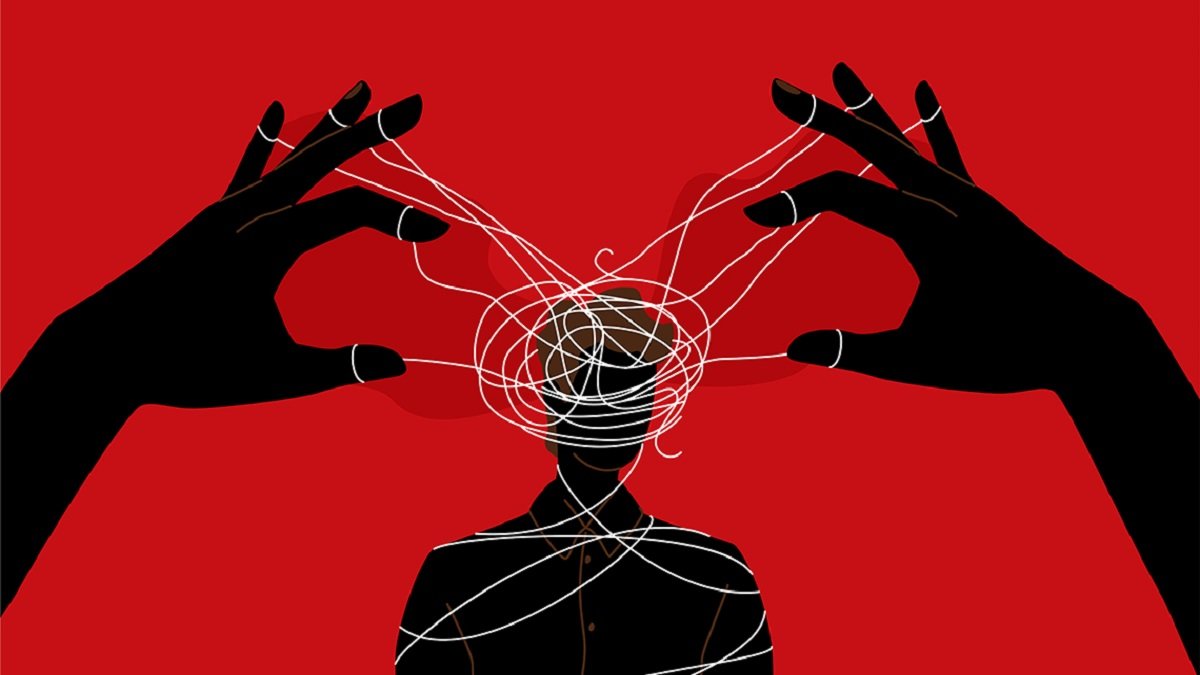Gaslighting is a term that has gained significant attention in recent years, as more people become aware of this form of psychological manipulation. The term refers to a situation where an individual manipulates another person into doubting their perception of reality. It will erode a person’s confidence & sense of self-worth. It is crucial to understand how to recognize gaslighting and develop strategies and ways to deal with gaslighting effectively.
This article will explore how to deal with gaslighting, focusing on how to identify it, respond to it, and protect yourself from its long-term effects. Whether you are dealing with gaslighting in a personal relationship, at work, or in any other context, these strategies will help you regain control over your emotions and mental well-being.
Tips To Deal With Gaslighting

1. Recognize the Signs of Gaslighting
Before you can explore the ways to deal with gaslighting, you need to know what it looks like. Gaslighting is often subtle, making it challenging to recognize in its early stages. However, there are key signs that can alert you to this type of manipulation.
- Denial of Your Reality: A gaslighter may deny things they have said or done, even if you have concrete evidence. They may tell you that you’re “overreacting” or “imagining things.”
- Contradiction and Confusion: Gaslighters often contradict you, leading to confusion and self-doubt. They might say one thing and later insist they never said it.
- Shifting Blame: When confronted, a gaslighter will often deflect blame onto you. They may claim that you misunderstood or that you’re the one causing the issue.
- Emotional Manipulation: Gaslighters use your emotions against you, making you feel guilty for things that aren’t your fault. They may exploit your vulnerabilities to gain control over you.
Understanding these signs is crucial because it allows you to assess the situation objectively. Once you recognize gaslighting, you can begin to implement strategies for protecting yourself.
2. Trust Your Perceptions and Emotions
One of the most insidious effects of gaslighting is the erosion of your trust in your perceptions and emotions. Over time, you may begin to second-guess yourself and doubt your sense of reality. This is exactly what the gaslighter wants — to make you feel unsure of yourself so they can manipulate you more effectively.
To combat this, it’s essential to trust your perceptions and emotions. If something doesn’t feel right, acknowledge it. Don’t allow anyone to invalidate your experiences or tell you how you should feel. Your feelings are valid, and it’s important to honor them.
You can also keep a journal to track your thoughts, feelings, and interactions. Writing things down will help you maintain a clear record of events and give you a reference point when the gaslighter tries to manipulate or confuse you. Reviewing your notes will help reinforce your perspective and provide clarity when you begin to doubt yourself.
3. Set Boundaries and Assert Yourself
Gaslighting often occurs when boundaries are not established or respected. To know how to deal with gaslighting, it’s essential to set clear and firm boundaries. This means asserting your needs and expressing when something is unacceptable.
When you are gaslighted, the gaslighter may try to push past your boundaries by making you feel guilty for standing up for yourself. It is important to remain strong and assertive in these moments. Let the other person know that their behavior is not acceptable, and make it clear that you will not tolerate manipulation.
You can also practice saying no. Gaslighters often try to manipulate you into agreeing with them or doing things that benefit them. Being able to say no, confidently and without guilt, will help you maintain control of your interactions.
Remember, boundaries are not about being rigid or punitive but about maintaining your mental and emotional well-being. They are an essential part of any healthy relationship and can help prevent future gaslighting.
4. Seek Support from Trusted Individuals
Wondering about ways to deal with gaslighting can be an isolating experience. The gaslighter may try to convince you that others don’t understand or that you’re the only one experiencing these issues. As a result, it’s crucial to have a support network of trusted individuals who can help you stay grounded in reality.
Reach out to friends, family, or therapists who are empathetic and understanding. Talking to someone who can offer a different perspective will help you see the situation more clearly. They can also provide validation and encouragement when you feel unsure of yourself.
In some cases, it may be helpful to join a support group for individuals who have experienced gaslighting or emotional abuse. Being around others who understand your experiences can help you feel less alone and provide valuable advice on how to cope.
5. Limit Contact or Distance Yourself if Necessary
Sometimes, the best way to deal with a gaslighter is to limit your contact with them or distance yourself entirely. Gaslighting often escalates when the abuser feels they have control over you, and staying in close contact may reinforce the toxic cycle.
If possible, consider reducing the frequency of interactions or stepping back from the relationship for some time. This can give you the space to gain perspective, recover emotionally, and reinforce your boundaries.
In situations where the gaslighting is particularly severe or harmful, it may be necessary to cut ties completely. This is a difficult decision, but your mental and emotional well-being should always come first. If you find that a relationship is irreparably damaging, distancing yourself is a healthy and necessary choice.
6. Stay Calm and Do Not Engage in Arguments
Gaslighters thrive on chaos and confusion. They may try to provoke emotional reactions from you, knowing that getting you upset will give them the upper hand. However, it’s important not to engage in arguments or emotional outbursts. Responding to the gaslighter with anger or frustration will only fuel their manipulative behavior.
Instead, try to remain calm and composed. Take a deep breath, and when responding, keep your words clear and concise. Avoid getting drawn into a cycle of back-and-forth accusations. Simply assert your reality and reinforce your boundaries.
If you feel that the conversation is escalating and becoming unproductive, you can choose to walk away. Removing yourself from the situation allows you to maintain control and avoid falling into the trap of endless manipulation.
7. Consider Professional Help or Therapy
Wondering how to deal with gaslighting can have long-term emotional and psychological effects. If you find yourself struggling to cope with the impact of gaslighting, it may be helpful to seek professional help. A licensed therapist can help you process your emotions, regain your confidence, and develop coping strategies.
Therapy can also help you rebuild trust in yourself and your perceptions, which can be severely damaged by gaslighting. Cognitive-behavioral therapy (CBT) and other therapeutic approaches can help you reframe negative thoughts and develop healthier ways of thinking.
Additionally, if you are in an ongoing gaslighting relationship, a therapist can help you assess the situation and offer guidance on how to handle it. They can also support you in setting boundaries, gaining emotional clarity, and making informed decisions about the relationship.
Impacts Of Gaslighting
Gaslighting is a psychological manipulation tactic that can have severe and long-lasting effects on its victims. Over time, this form of emotional abuse erodes self-confidence, distorts reality, and can even impact mental and physical health. Understanding the effects of gaslighting is essential for recognizing and finding ways to deal with gaslighting.
Self-Doubt and Confusion: Victims of gaslighting often second-guess their memories, emotions, and judgments. The constant denial and distortion of reality can lead to deep confusion and uncertainty.
Low Self-Esteem: Gaslighting makes people feel inadequate or unworthy. As their sense of reality is continuously challenged, they may start believing they are incompetent or incapable.
Anxiety and Depression: Constant psychological manipulation can lead to emotional distress, including anxiety and depression. Victims may feel overwhelmed, hopeless, or trapped in toxic relationships.
Loss of Trust in Oneself and Others: Gaslighting damages an individual’s ability to trust their perceptions and experiences. This can make it difficult to trust others, leading to isolation and strained relationships.
Emotional and Psychological Exhaustion: The ongoing mental battle to discern truth from manipulation is draining. Victims often feel emotionally exhausted and mentally fatigued.
Dependence on the Gaslighter: Over time, victims may become reliant on the gaslighter for validation, believing that only they can provide the “correct” version of reality. This deepens the cycle of manipulation.
Physical Symptoms: The stress caused by gaslighting can manifest physically through headaches, digestive issues, insomnia, and other stress-related ailments.
Recognizing the impacts of gaslighting is crucial in breaking free from its grip. Seeking support from trusted friends, family, or a therapist can help victims rebuild confidence and regain control of their lives.
FAQ
Q: Can a gaslighter benefit from therapy?
A: For people who have been gaslighted, therapy offers a secure setting in which to learn how to establish appropriate boundaries.
Q: What is the reality of gaslighting individuals?
A: By undermining their abilities to make the victim believe that their emotional stability, believability, or memory is impaired, someone who gaslights another person destabilizes and manipulates them, leading the victim to doubt themselves and become more dependent on the gaslighter.
Q: Is it possible to cease gaslighting someone?
A: This behavior can be changed if the gaslighter is prepared to be honest with themselves and put in the effort to alter their interactions. The trend is unlikely to alter, however, if they refuse to acknowledge that they gaslight others and that it causes genuine harm to the victim.











